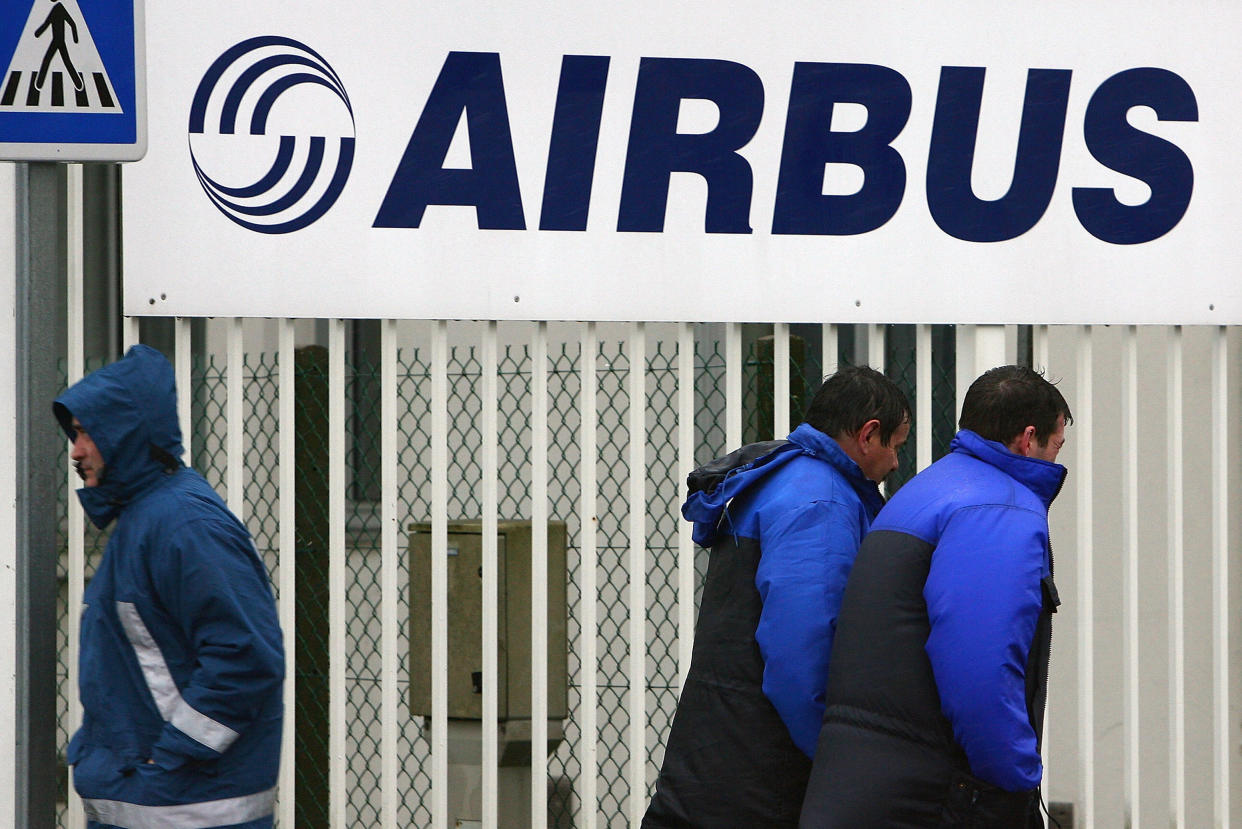Coronavirus: Airbus to slash 15,000 jobs from global workforce

Airbus (AIR.PA) on Tuesday announced plans to cut 15,000 jobs from its global workforce, citing the impact of the coronavirus pandemic on the aviation industry.
The French plane maker said the job cuts, which affect around 11% of staff, were “necessary” for “safeguarding the company’s future” in light of the COVID-19 pandemic.
Some 1,700 jobs will be lost in the UK. Airbus employs 13,500 people primarily at its Broughton and Filton sites.
“Airbus is facing the gravest crisis this industry has ever experienced,” chief executive Guillaume Faury said in a video statement.
“The measures we have taken, so far, have enabled us to absorb the initial shock of this global pandemic. Now, we must ensure that we can sustain our enterprise and emerge from the crisis as a healthy, global aerospace leader, adjusting to the overwhelming challenges of our customers.”
The deepest cuts will fall in France, where 5,000 jobs will be cut, and Germany, where 5,100 roles are set to be lost. Airbus currently employs 135,000 globally.
Airbus said it would work with unions to cut headcount as much as possible using voluntary departures, early retirement, and long term partial unemployment schemes. However, it said it could not rule out redundancies.
The aviation industry is confronting an unprecedented crisis in coronavirus, as airlines and manufacturers face a collapse in demand from travellers. Airbus said in Tuesday’s statement that commercial aircraft activity has dropped by 40% so far this year and is not expected to recover until 2023.
The job cuts come despite a €15bn (£13.6bn, $16.8bn) bailout package announced by the French government for Airbus and Air France earlier this month.
“We thank our governmental partners as they help us preserve our expertise and know-how as much as possible and have played an important role in limiting the social impact of this crisis in our industry,” Faury said.
“The Airbus teams and their skills and competences will enable us to pursue our ambition to pioneer a sustainable future for aerospace.”
READ MORE: Coronavirus: Airbus expects 40% drop in production over next two years
The International Air Transport Association (IATA) said in its financial outlook report earlier this month that the global airline industry would lose $84bn (£66bn) this year. Revenue is expected to slump by 50% to $419bn.
“Financially, 2020 will go down as the worst year in the history of aviation,” Alexandre de Juniac, IATA’s director general said.
A separate report from think tank the New Economic Forum warned that as many as 70,000 jobs linked to the aviation industry were at “immediate” risk due to the coronavirus pandemic.
The report compared the expected collapse in aviation employment to the rapid decline of the UK coal industry in the early 1980s, which left lasting economic scars on many communities.
READ MORE: Coronavirus: Airbus CEO warns cost cuts needed as it's 'bleeding cash'
Airbus said in April that it was cutting production at its Broughton facility in Wales, where it assembles wings for use in aircraft production in Spain, France and Germany. In a memo, the company said it was “bleeding cash” and needs to rapidly cut costs. Some 6,000 people are employed at the site.

 Yahoo News
Yahoo News 
